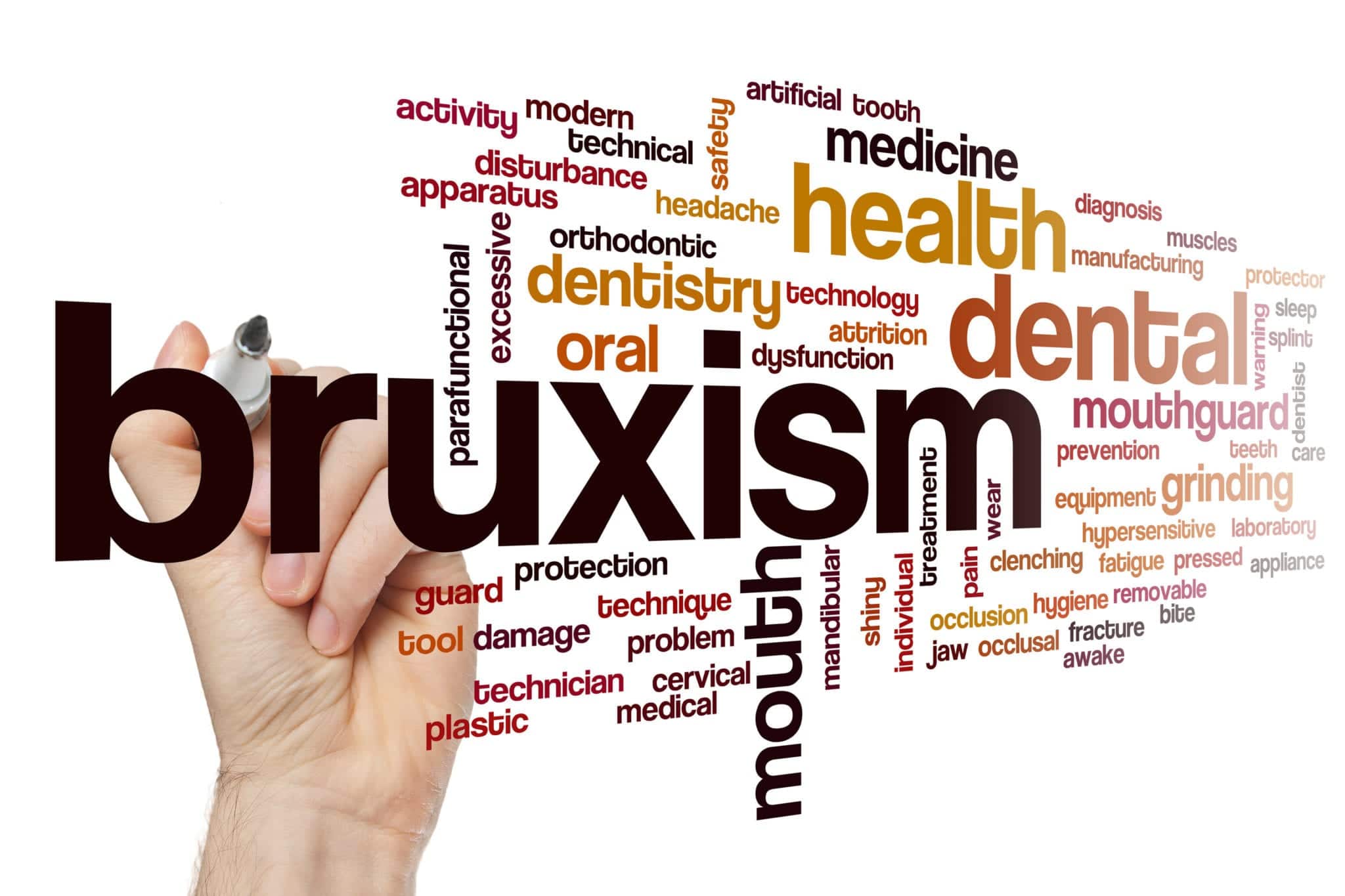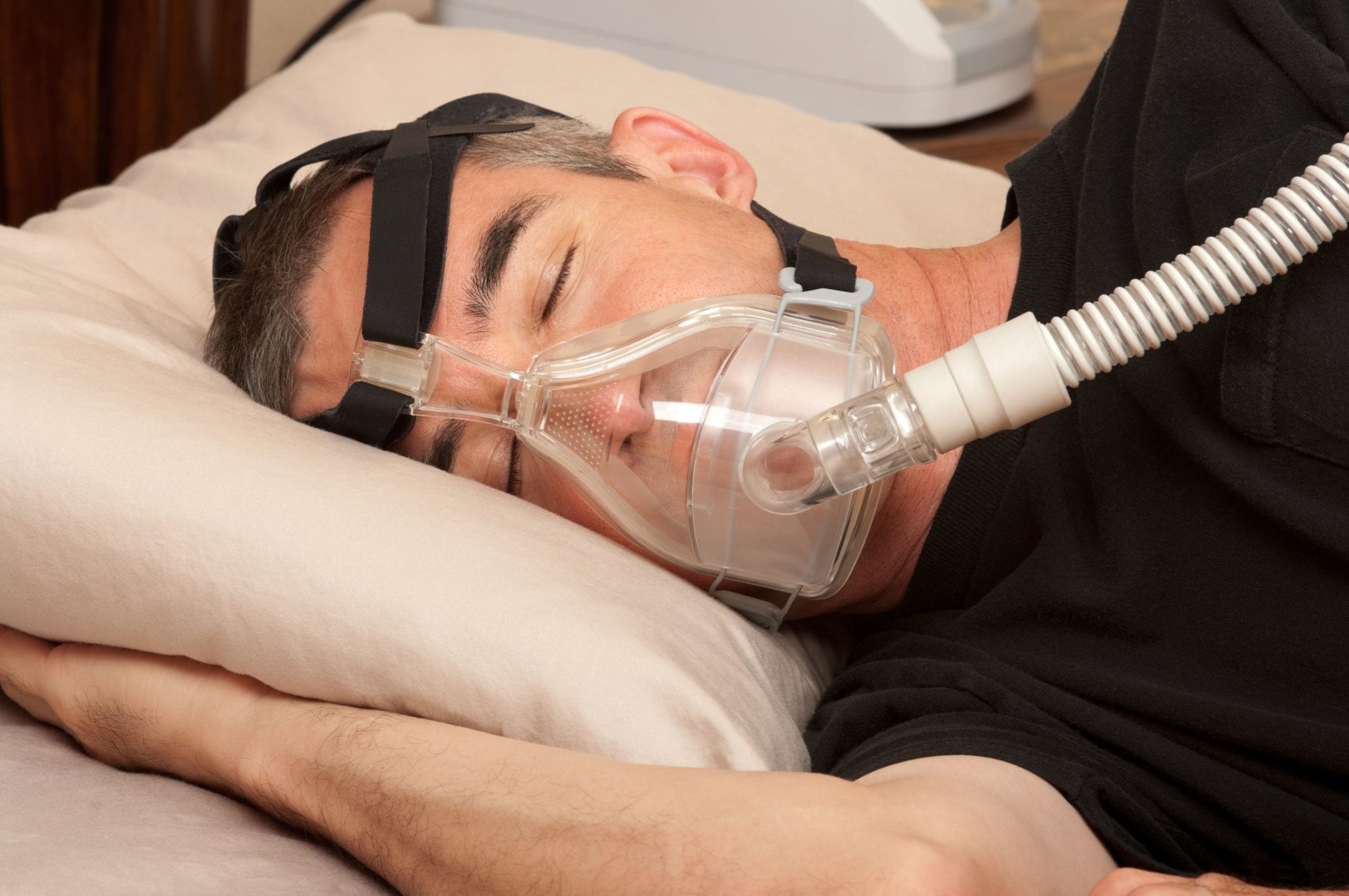
Teeth grinding, or bruxism, is a very common problem. Unfortunately, it can lead to many problems, including wear to teeth, TMJ, headaches, and unrestful sleep.
There are two primary forms of bruxism: day bruxism, which occurs while the patient is awake, and bruxism during sleep. Each form can originate from one of several causes, and your dentist may be able to fit you with a mouth guard for day or nighttime use to prevent or decrease bruxism and to minimize the damage to your teeth.
Day Bruxism
Day bruxism occurs while the patient is awake, but often the patient is unaware of the habit. However, increased awareness and behavioral modification may be helpful in preventing or decreasing day bruxism. Also, because the root cause of daytime bruxism is frequently psychological, addressing the underlying issues may be helpful. Some of the causes of daytime bruxism may also increase the risk of bruxism at night as well.
Concentration. Most of us have heard the phrase to “grit your teeth” and get something done. Concentration on a task at hand can cause patients to unconsciously grind their teeth, putting pressure on the jaw and working it back and forth. This often occurs while working at a computer, driving, reading, or studying.
Anger. When we’re in a frustrating situation, we often become tense and clench our teeth. This can also be an attempt to not say things we shouldn’t, or a physical way of manifesting the inward frustration and tension we’re feeling. Some studies have shown that anger management may be helpful in resolving anger-related bruxism.
Stress. Stress causes the entire body, especially the facial muscles and jaw, to become tense. Prolonged or intense stress may cause patients to clench or grind their teeth. Being aware that you’re likely to grind your teeth when stressed and making a conscious effort to stop may be helpful. Further, relaxation and stress management techniques may help to decrease stress levels, alleviating bruxism.
Depression and anxiety. Studies have shown that patients suffering from depressive and anxiety disorders are more likely to suffer from bruxism. Further, many of the medications used to treat these disorders, such as SSRIs, may cause or exacerbate bruxism. In these cases alternative treatments for stress and anxiety may be helpful, as may increased awareness of teeth grinding or clenching. A mouth guard may also be helpful to these patients.
Bruxism during sleep
Bruxism during sleep is very common, and to some degree may even be considered normal. The above causes of day bruxism may contribute to bruxism during sleep, but there are a few sleep-specific contributors to bruxism during sleep as well. A night guard can be very effective in decreasing bruxism during sleep, and in minimizing damage to the teeth.
Sleep cycle. During sleep, your body moves through varying degrees of arousal, known as the sleep cycle. During this process, the muscles of the body tense and relax, which may cause your jaw to clench, resulting in teeth grinding. If you suffer from a sleep disorder in which your sleep cycle is disturbed in some way, you may be more prone to this kind of bruxism.

Obstructive sleep apnea. Studies have shown that obstructive sleep apnea, or snoring, is linked to bruxism. Generally patients grind their teeth at the end of an apnea event, as the body becomes more aroused. Correcting sleep apnea through a continuous positive airway pressure (CPAP) machine and lifestyle modifiers such as weight loss may help to alleviate sleep apnea-related bruxism.
Tooth misalignment. In some cases, misalignment of the teeth may cause or exacerbate sleeping or waking bruxism. In this case, full mouth rehabilitation aimed at aligning teeth may be helpful not only in preventing bruxism, but also in preventing other complications.






